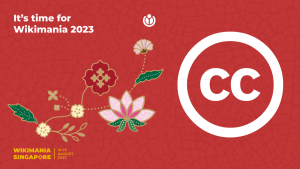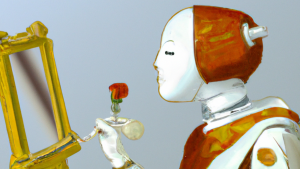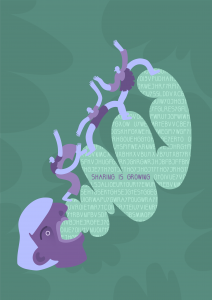CC at Wikimania 2023
jeudi 17 août 2023 à 06:07
CC is thrilled to be partnering with the Wikimedia Foundation to make Wikimania 2023 a reality. The gathering takes place 16–19 August both in Singapore and online. Whether you can make it to Singapore or not, register now to attend, participate, and access recorded sessions.
The CC and Wikimedian communities overlap in many ways and share common values and activities dedicated to building and sustaining open culture and knowledge. As a part of the program, CC team members are leading four sessions, outlined below. Many Wikimania attendees are also part of CC’s Global Network and platforms for copyright, open education, and open culture, or support CC in other ways. We celebrate this global gathering of people all working with shared values to realize common goals. Tune in to Wikimania with us!
Better Sharing in a World with AI: Creative Commons Looks Ahead
CEO Catherine Stihler and General Counsel Kat Walsh will kick off CC’s sessions with a joint keynote to guide participants through the journey CC has been on to understand how artificial intelligence (AI) intersects with CC’s 20-plus-year history of supporting open knowledge and culture globally with our licenses and legal tools. Then they will help participants look ahead to see how we can all advocate for policy and practices that ensure a world with AI will continue to support CC’s strategy of better sharing: sharing that is contextual, inclusive, just, equitable, reciprocal, and sustainable. Tune in: 2:00 UTC/10:00 SGT on Fri 18 Aug
Why Tackling Climate Change Needs Open Science and Open Culture
Open Climate Campaign Manager Monica Granados and Director of Policy and Open Culture Brigitte Vézina are leading a workshop about why tackling climate change needs both open science and culture. They describe: To arrive at solutions to climate change we need open access to knowledge. But climate change is caused by human activities, as such we also need open culture to understand why humans have caused climate change. In this workshop, we will remix public domain culture to raise climate awareness and highlight the need for both open climate and culture to solve climate change. Tune in: 3:15 UTC/11:15 SGT Fri 18 Aug
Building an Initiative for a Global Recommendation on Open Culture
CC’s open culture team will present how CC is building an initiative for a global recommendation on open culture. Team members Brigitte Vézina, Jocelyn Miyara, and Connor Benedict will report on what’s happening with the recommendation so far, including the May 2023 Lisbon meeting with global culture experts, and look to engage Wikimania’s broader and more diverse global participants in the initiative. Tune in: 6:55 UTC/14:55 SGT Fri 18 Aug
Exploring the Values That Will Shape AI for a Better internet
AI is deeply connected to networked digital technologies — from the bazillions of works harvested from the internet to train AI to all the ways AI is shaping our online experience, from generative content to recommendation algorithms and simultaneous translation. Representing the Movement for a Better Internet, co-founded by CC and other public-interest organizations, CC’s Director of Communications & Community Nate Angell is teaming up with consultant Shannon Hong to lead a workshop that will engage Wikimania participants directly in helping to shape how AI fits in to the Movement’s people-powered policy agenda. Tune in: 3:15 UTC/11:15 SGT Sat 19 Aug
The post CC at Wikimania 2023 appeared first on Creative Commons.



